The European Bank For Reconstruction and development has recognised author Ivana Bodrožić and translator Ellen Elias-Bursać with 2025 award
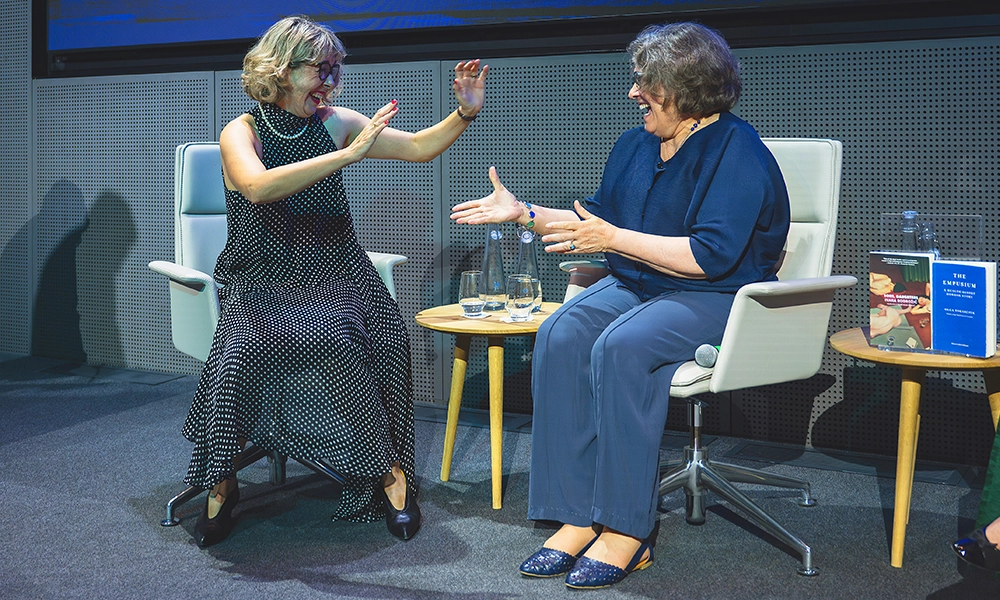
Subscribe to our free Wharf Whispers newsletter here
Canary Wharf, known in the public psyche for its tall towers housing companies delivering financial services, has long been much more than that.
Its true essence is defined by the people inside those buildings – their interests, passions and diversity.
The European Bank For Reconstruction And Development (EBRD) Literature Prize – recently awarded at the organisation’s Bank Street offices – is an excellent example.
Born of a desire from staff to share in and engage with cultures in the territories where the bank operates, the contest is now in its eighth year and recognises works of fiction translated into English.
Both author and translator are equally celebrated for their efforts, reflecting the prize’s aim – to spread notable writing to as wide an audience as possible.
For 2025, an independent panel of judges led by critic and cultural journalist Maya Jaggi chose Sons, Daughters by Ivana Bodrožić, translated from the Croatian by Ellen Elias-Bursać as the winning work.
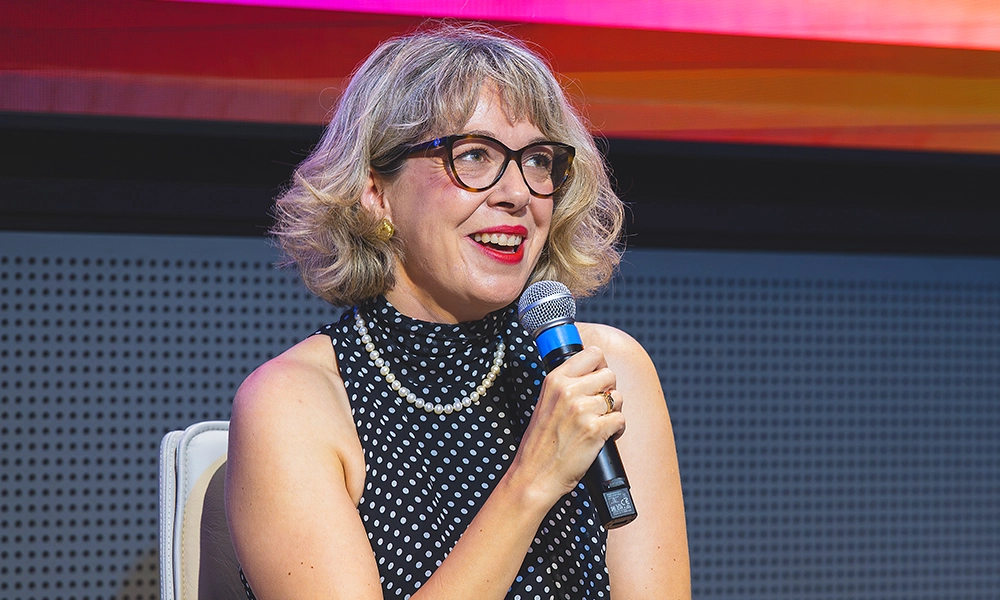
a feeling of being locked in
“It’s a novel I published in Croatia five years ago, so I was writing it maybe seven or eight years ago,” said Ivana.
“It started from me and my own feelings of being locked in and is written from three different perspectives.
“The first is a woman who has locked-in syndrome.
“She’s paralysed but she has a really strong inner life.
“The second voice is that of a young man.
“He is transgender and he doesn’t feel like he belongs to his body when he looks in the mirror.
“The third is the perspective of the mother of the first character.
“She is a woman in her 60s. She was born and raised in the patriarchy and she is deformed by that system, although she doesn’t even realise it.
“I wanted to tell a story about how we are all locked in ourselves – that we can live and move, but sometimes be paralysed.
“At the time I was writing it was difficult to be part of the LGBT minority in Croatia.
“It was when the Istanbul Convention was being ratified and there were some really loud parts of society – the right wing and the Catholic church.
“They wanted to point a finger at transgender people, saying that they were the biggest problem in Croatia and there were only one or two people who spoke out about their experience of living in that situation.
“In this radical metaphor through literature I was hoping that I could connect all those painful stories and make a novel that readers who wanted to be open could understand.”
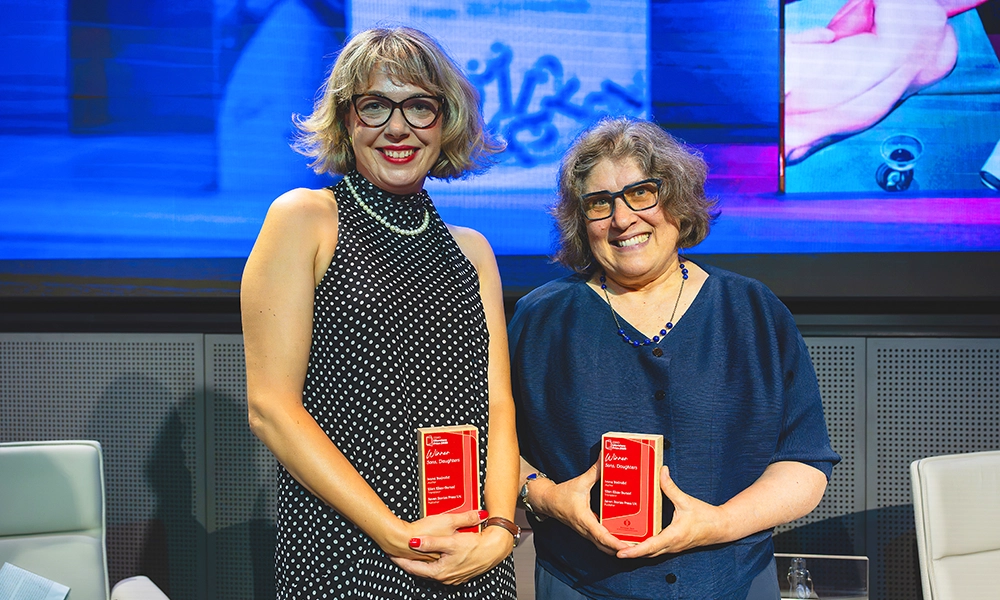
winning the EBRD Literature Prize as an author
Ivana first found a love of reading as a child.
Growing up she spent five years in a refugee camp where “books were the only thing that told us there were other worlds, which was crucial for me”.
She said: “Books and stories became an essential part of my identity from an early age. Writing is connected with my life, not just talent but something I earned.
“I believe we can write about almost everything.
“What is important is our intention – what we want to do with our stories.
“Do we want to harm or humiliate someone, or do we want to make a larger space for understanding and freedom for human dignity?
“Sons, Daughters is not an easy book to read.
“All the stories are painful.
“My intention, when the reader closes the book, is to make them think that they have time to change something in their life, to open up a bit and see where their blind spots are.
“In that way, perhaps this novel is optimistic.
“It shows you that you don’t need to be so closed, so locked in your own world.
“Winning this prize gives you the feeling that you’re a real writer and you know what you’re doing.
“It’s wonderful to know there’s a community of readers and what you’re doing means something.
“Writing can be a lonely job and being translated is very rewarding. Croatia is a very tiny community.
“It means a lot to know that sometimes I may be able to cross language borders.”
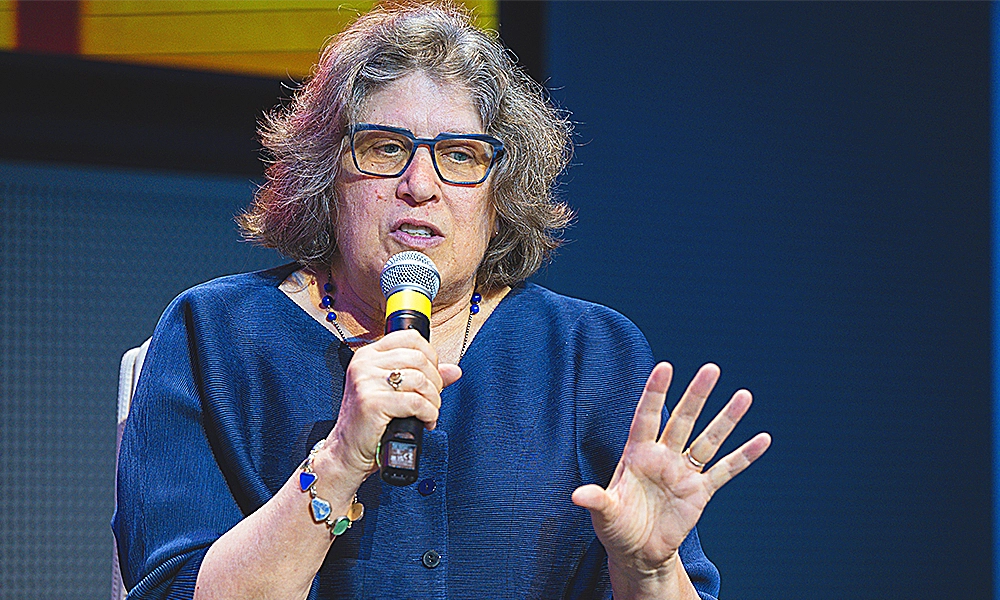
translating the work
In this instance, the person tasked with shepherding Ivana’s words over the hurdles of understanding was translator Ellen Elias-Bursać – joint winner of the prize.
Born in the USA, it was studying Russian that sparked her professional journey.
“Our anti-Soviet professors wouldn’t send us to the USSR, but we were allowed to go to a Slavic country,” said Ellen.
“They found a programme in what was then Yugoslavia, and I went for a year.
“I met a guy, finished school, went back and got married in 1974 and lived there until 1990.
“I had my kids there and became a community translator for many years, getting involved in translating literature towards the end of my stay.
“I met Ivana through the publisher of her first novel, which was about the war in Croatia.”
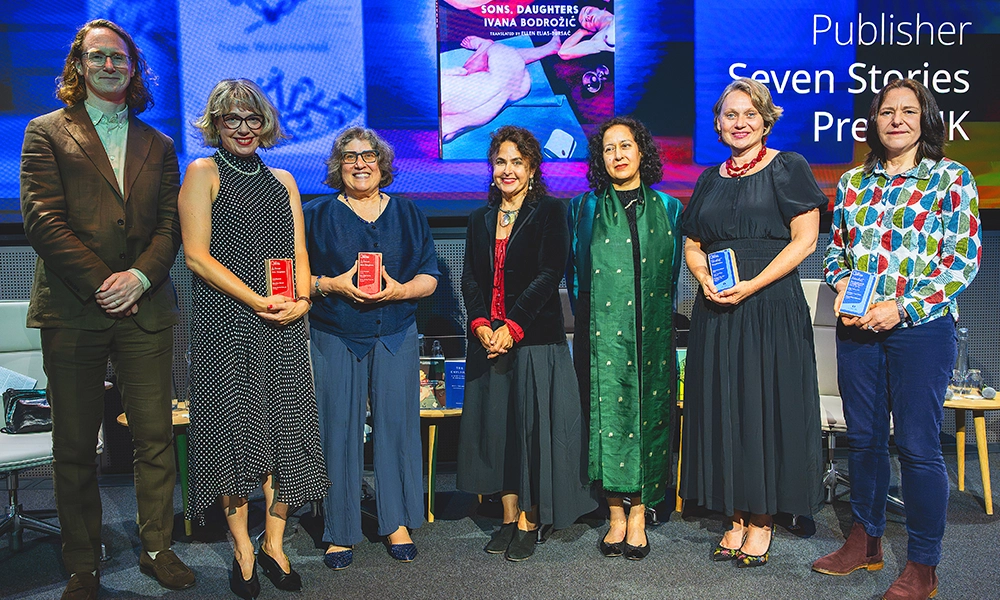
winning the EBRD Literature Prize as a translator
Ellen said her process for translating a work began slowly before the pace picked up and she’d reach the end of a text.
Then a painstaking period of editing kicked in to ensure everything fitted together.
She said: “Different novels require different contextual explanations depending on how much reference there is to local culture.
“It’s about the sound of the language and the humour too.
“There’s always loss and always gain with translation, you just hope there’s more of the latter.
“It’s tremendously gratifying to win this prize.
“Our role is to support authors and we end up doing much more than translating.
“We work with publishers, attend book launches, find people to review and promote things.
“I’m really happy that Ivana’s novel, which deserves attention, is thankfully getting it.
“I’m also very pleased the EBRD continues to support voices from many parts of the world by promoting books and bringing them to people’s attention – that’s a really valuable gift for everyone.”
key details: EBRD Literature Prize
The EBRD Literature Prize is awarded annually, recognising both the author and translator of a work of fiction.
It celebrates creativity in the regions where the bank operates and aims to bring writing from a wide range of countries to a wider, global audience.
The other finalists recognised in 2025 were Ukraine’s Tanja Maljartschuk and translator Zenia Tompkins for Forgottenness, alongside Poland’s Olga Tokarczuk and translator Antonia Lloyd-Jones for The Empusium.
You can find our more about the prize here
- Sons, Daughters by Ivana Bodrožić, translated from the Croatian by Ellen Elias- Bursać, is published by Seven Stories Press UK and is available through Waterstones in Cabot Place, priced £17.99.



